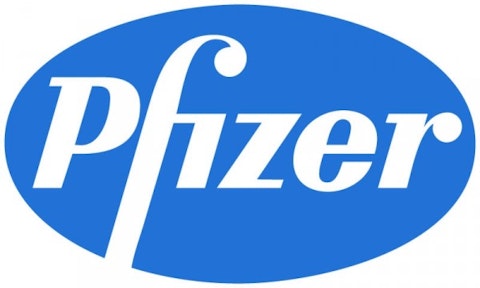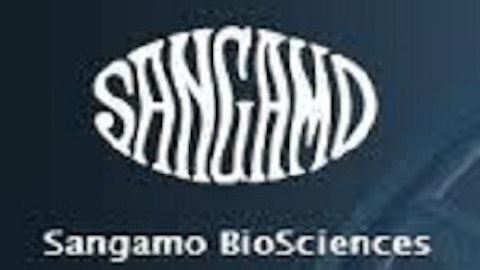Generic-drug makers have considerable tailwinds, making their outperformance in the past year unsurprising. However, most companies within this sub-industry are both cheap and relatively unknown — a combination which bodes well for investors. Here, we’ll review three generic-drug makers that still trade at appealing valuations.
How the generics game works
Prescription drugs are split into two categories: generic and brand-name. Pharmaceutical companies develop their products through a laborious and risky period of research and development. In return, the inventing company enjoys a period of patent exclusivity, after which time generic companies are able to produce the drug as well. Because generic companies lack exclusivity, their profit margins are lower — but so are their research and development costs.
Probably the best-known brand-name pharmaceutical company is Pfizer Inc. (NYSE:PFE) with $57.6 billion in revenue and $15.5 billion in net income over the past year. Due to the high number of drug approvals in the 1990s, Pfizer Inc. (NYSE:PFE) and its peers are facing an abnormally high number of patent expirations. However, the sales from these drugs do not disappear and a brand-name company’s loss should prove to be a generic company’s gain.
Figure 1 below shows the number of patent expirations and the annual sales they represent. The largest number of expirations occurred in 2012, with 10 huge patents heading over the cliff, alongside $35.5 billion in revenue.
However, the market has recently been surprised by the disappointing results from several brand-name drug companies; thus, it seems likely that all the upside for generics has not yet been discounted. For example, Pfizer Inc. (NYSE:PFE) recently missed on earnings and revenue, lowering its full-year revenue forecast from $57.3 billion to $55.3 billion.
Finally, due to an aging population and an increasing pool of consumers with access to prescription drug benefits; generic drug companies appear poised to outperform even with fewer expirations in 2013-2015. In total, generic drug sales were $242 billion in 2011; however, the market is expected to expand to $425 billion by 2016.
Figure 1: Brand-Name Drugs Facing Patent Expiration Between 2011 and 2015

3 generic drug stocks worth a closer look
Actavis Inc (NYSE:ACT), formerly Watson Pharmaceuticals, has been actively acquiring rivals with two large purchases in the past year. While Actavis Inc (NYSE:ACT) appears quite expensive based on trailing earnings, these metrics are skewed by one-time costs. Actavis Inc (NYSE:ACT) trades for 14.67 times forward earnings even following 75% price appreciation in the past year.
The market has taken a very positive view of Actavis Inc (NYSE:ACT) acquisition-based strategy, however, some caution could be warranted. Long-term debt to capitalization has ballooned from 18.5% to 60.8%, and it remains unclear how well integrating two smaller companies will go. Actavis Inc (NYSE:ACT) could be a strong buy at the present price, but these uncertainties and the recent run up cause me to shy away from recommending it now.
Mylan Inc. (NASDAQ:MYL) is a Pittsburgh based company and one of the larger generic drug makers. 45% of revenues come from outside of North America, many from faster growing emerging markets. Mylan has also been growing through acquisitions, with three significant purchases in the past three years.
Again, one-time costs cause Mylan Inc. (NASDAQ:MYL) to appear expensive, however, the company trades for approximately 10x forward earnings with a revenue CAGR of 29% over the past nine years. Thus, Mylan is a reasonably valued choice to capitalize on generic drugs through a large player with a diverse product base.
Taro Pharmaceutical Industries Ltd. (NYSE:TARO) is a small generic Israeli-pharmaceutical company that develops and markets over-the-counter and prescription pharmaceuticals with a primary focus on pediatric creams and ointments. The company appears to be significantly undervalued at less than ten times trailing earnings with stellar earnings and revenue growth. Taro Pharmaceutical Industries Ltd. (NYSE:TARO)’s niche also allows the company to command superior gross margins due to the higher complexity of manufacturing topical products. The company is an impressive growth stock in a hot industry trading for a bargin price.
Investors must also be aware that Sun Pharma has attempted to complete an acquisition of Taro after purchasing a 67% stake several years ago. Shareholders rejected a $39.50/share offer last year that grossly undervalued the company. Even at $58/share the market values Taro at 5.74 times EV/EBITDA. Considering recent comparable acquisitions, Taro remains underpriced by 53% relative to the minimum acquisition price, and nearly threefold relative to the median.

Which stock has the best prescription for profits?
Given the recent pullback and the strong psychological anchor of the already rejected offer, it seems unlikely that Taro will fall much further. The present price appears to be an attractive entry point, and a buyer today can count on improving business fundamentals or immediate price appreciation if Sun increases its offer.
Taro hits the trifecta with very attractive fundamentals, a cheap share price relative to its growth, and a catalyst for higher prices on the horizon. Thus, it seems likely that an investment in the company will provide excellent returns moving forward.
Brendan O’Boyle has positions in MYL and TARO. The Motley Fool has no position in any of the stocks mentioned.
The article Which Generic Drugmaker Is Your Best Buy Today? originally appeared on Fool.com and is written by Brendan O’Boyle.
Brendan is a member of The Motley Fool Blog Network — entries represent the personal opinion of the blogger and are not formally edited.
Copyright © 1995 – 2013 The Motley Fool, LLC. All rights reserved. The Motley Fool has a disclosure policy.




